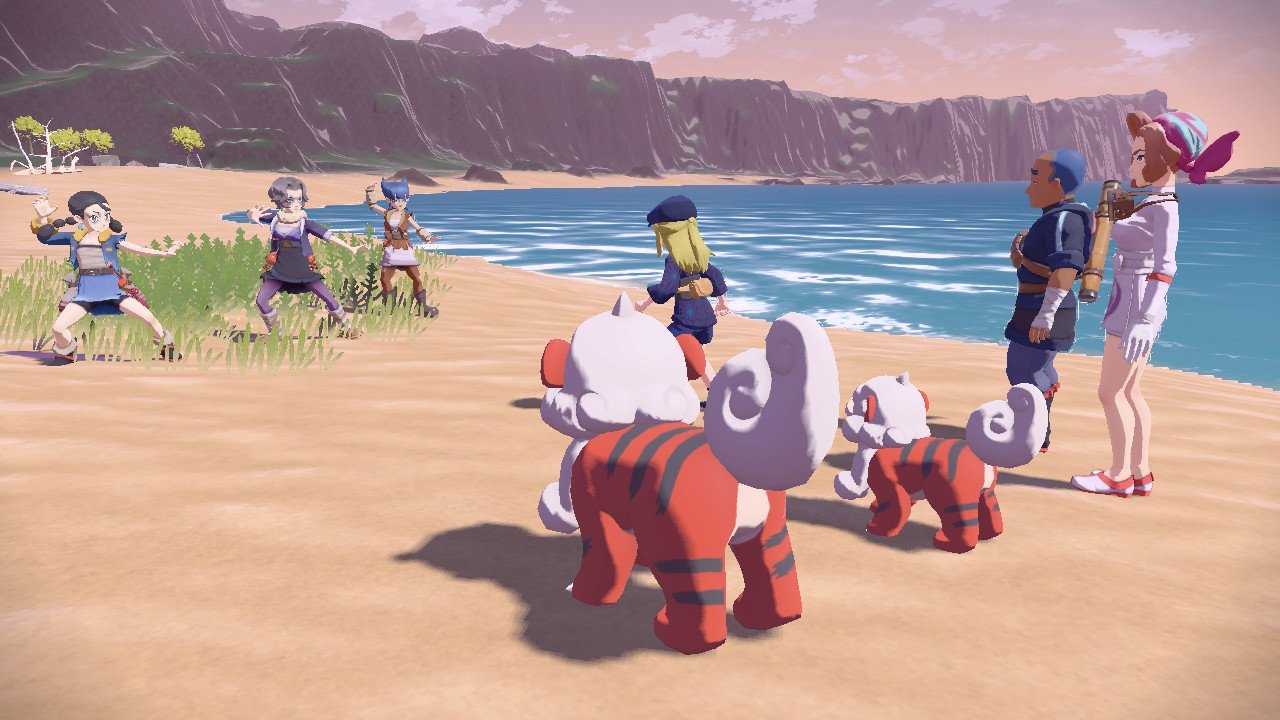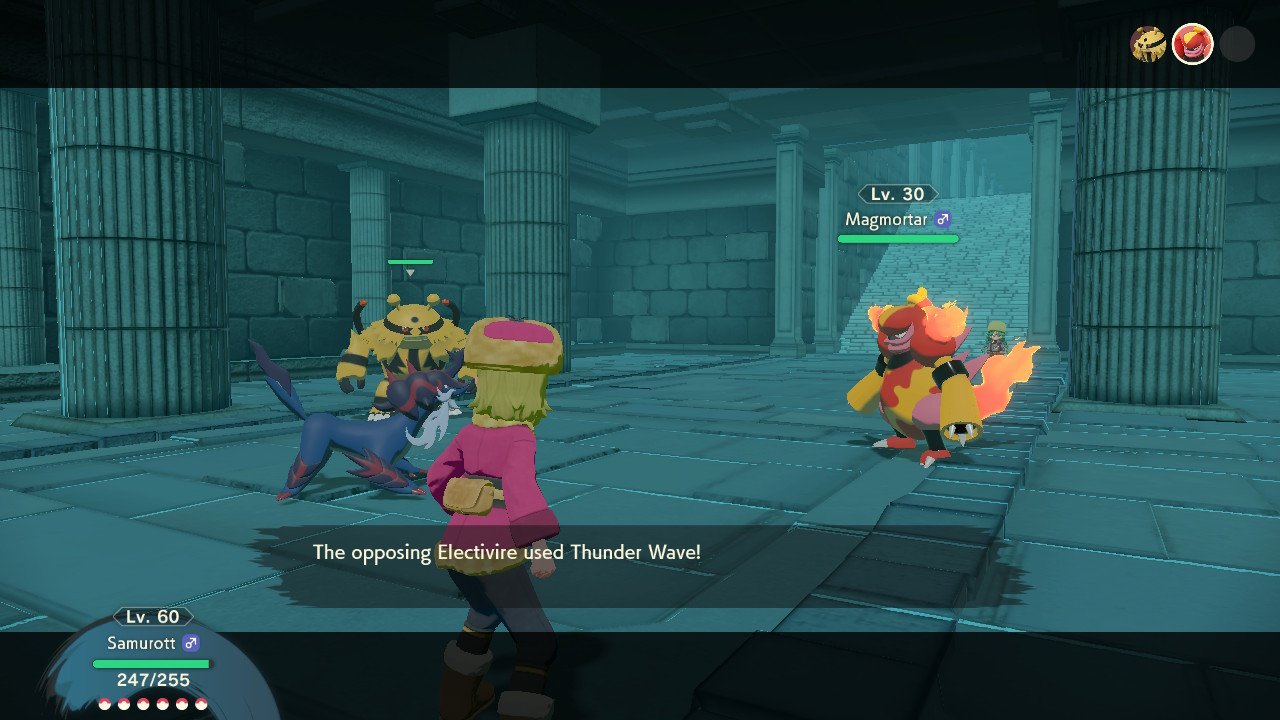Pokémon Legends Arceus Review - Pokémon takes little baby steps into innovation
/I wasn’t quite sure what to make of Pokemon Legends: Arceus when it was first announced in 2021. On the one hand, Game Freak and The Pokemon Company appeared to be innovating by changing up the series’ battle mechanics and adding in real-time elements. On the other hand, the poor graphics and empty-looking overworld left a lot to be desired. It was also unclear whether or not the game would be an experimental one-off, or an attempt to change or evolve the series’ core mechanics. As someone who’s played since the very first titles but finds the latest entries to be stale and disappointing, let’s just say I was cautiously optimistic, and went in with very low expectations.
As I started the game up, I was immediately taken in by the otherworldly introduction, where your player character is sent back to the earliest point we’ve yet seen in the Pokemon timeline, one artistically inspired by Japan’s Meiji era. Pokemon Legends: Arceus’ trailers promised a decent story, and while I can attest that the writing and characters receive way more focus than usual in this entry, the presentation leaves a lot to be desired, as there’s still no voice acting, with most interactions consisting of characters awkwardly standing around talking. The only standout animations occur in facial expressions.
A Diamond in the rough
The story is decent, simple, and takes place in the Hisui region, which will later become Diamond and Pearl’s Sinnoh. Your avatar falls out of a gaping rift in the sky, one that has been giving Jubilife’s townspeople anxiety, as it not only appears to be creating spacetime vortices on the continent, but it’s caused special plus-sized ‘lord’ Pokemon to glow with energy, turn rogue, and lash out at their warders. As you’re an oddly-dressed stranger in Jubilife village, the townspeople are initially skeptical of your character, but in true JRPG fashion, a plethora of missions and sidequests await the intrepid adventurer, with requisite rewards.
As interesting as the story is, the real draws are the revamped combat and catching systems. The changes to gameplay, while not perfect, make Arceus, at least initially, far and away more captivating than the games that preceded it, thanks to several factors. First and most importantly, you can aim Poke Balls - loaded or not - to interact directly with Pokemon on the field, and while exploring, you’ll be able to easily shuffle who’s next in line to battle, as well as send them to harvest materials from trees, shrubs, and mineral outcroppings, essential for crafting healing items and Poke Balls.
Get Up Close and Personal with your favorite Pokemon
If this sounds like a natural extension of the Wild Areas in the recent Sword and Shield titles mixed with elements from The Legend of Zelda: Breath of the Wild, you’re about halfway there. The real kicker is that many Pokemon will either run or attack your avatar on sight, so you’ve got options - dodge like it's Dark Souls, sneak around in the tall grass and try to nab them without being spotted, ambush them with your Pokemon to start a fight, lure/repel them with food, or run away. You’ll also get multiple Pokemon mounts that you can ride across the game’s several vast open areas. Also, combat itself is tweaked in many minor ways.
While you’ll be dodging the occasional attack, aside from bosses, you don’t fight Pokemon directly in real-time, so the traditional four-move, turn-based core of Pokemon combat remains. The game introduces Agile and Strong variations to attacks, the former of which are faster and weaker, while the latter are stronger and slower. Best of all, your Pokemon’s moves can now be easily switched outside of battle, making it infinitely more convenient to swap movesets. It really opens up a lot of possibilities - you can have your starter be a sweeper in one battle, and a defensive tool for monster-catching in the next. Held items no longer exist. Status effects are tweaked, with most being weaker, and they thankfully disappear after each battle.
These changes, as well as the limited pool of teachable moves (via a move tutor), make certain builds, such as dedicated physical and special sweepers, far more effective. It’ll be in your interest to get battles done as quickly as possible, especially since you’ll often find yourself fighting multiple wild Pokemon at once with just one of your own. For the most part, the changes also help the game to flow smoother, since you’ll be covering a lot of ground in the great outdoors, often atop mounted Pokemon. However, due to the kneecapping of potential builds owing to the removal of breeding, and the lack of variety in your foes making fine-tuning an afterthought, I grew bored of the battles halfway in.
Different Game, Different Progression
Since this game takes place in an earlier time in the universe, there are no gyms, no breeding, and very few trainer battles. Instead, you’ll spend time gathering and crafting, and cataloging your Pokedex. As for that Pokedex, this time your entries don’t end with just catching and trading Pokemon. You’re also tasked with, say, catching or defeating multiple mons, seeing them use specific moves, or utilizing certain types of moves against them. You’ll only need to fulfill ten challenges per Pokemon, so in most cases the list isn’t daunting, though it can get to feeling like busywork.
Plenty of sidequests await, as the people of the Hisui region have no end of problems, many of which are comically solved by helping them to overcome their fears, hesitations, or ignorance regarding Pokemon. The story is that before your character showed up, they were struggling to live in the midst of the creatures, which in turn helps give the players a sense of responsibility and, ultimately, accomplishment as the town grows. With the possible exception of Black and White, this is one of the first Pokemon games where I really felt like my character was actively shaping the world at large. Once the story was finished, however, I felt very little drive to explore the postgame content, which consists of eight additional missions.
At the end of the day, it’s still Pokemon
That brings me to the game’s biggest weakness - the world itself - and I don’t just mean the fact that there are limited ways to interact with the environments, or that the 242 Pokemon are a mixed bag of species. While the Pokemon models are often well-animated, the day-night and weather cycles add variety, and the game runs smoothly with minimal loading, there’s no sugarcoating the fact that the graphics and environments are subpar, featuring empty-looking worlds, trees and textures that would look more at home on the GameCube, pop-in and heavy aliasing, and a bland color palette tempered by muted art direction. This game could have really used another coat of polish. Thankfully, I can easily praise the stellar music.
It really is a testament to the strength of Arceus’ core mechanics that the bland, uninspired environments, lack of trainer battles, and unfinished feel of the game in general don’t completely sink the experience. Perhaps it’s because my expectations were so low going in, but I can safely say that in spite of its many faults, Pokemon Legends: Arceus is the most fun I’ve had with a Pokemon title since the days of Diamond and Pearl on the DS. It also shows that the franchise in general still has potential. That may sound like faint praise from someone who has been critical of the mainline franchise for years, but I think most fans will appreciate the real-time elements, the easily-swappable movesets, and the additions to the world-building and lore. My only hope is that Nintendo is able to build upon what they’ve established in this title and utilize it to take the franchise forward in a bold new direction.
7/10
PROS
Welcome new combat and real-time mechanics that help speed up the game flow
The epic story, worldbuilding, and setting in Pokemon prehistory should be quite satisfying for longtime fans
The musical score is good
CONS
Bland, unengaging, and unmemorable overworld
Ugly textures and graphics hampered by a bland color palette
No Elite Four, very few Trainer battles, and a Pokedex limited to 242 Pokemon (as of launch)
What I’ve Played
Beat the game with an eight-star ranking
Played for 32 hours
172/242 Pokemon caught














